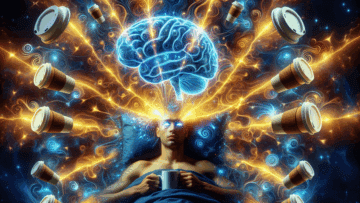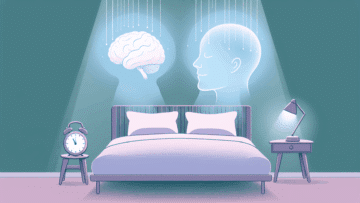Sleep Disorder
- Sort by: Latest
Boost Brain Health: Exercise to Combat Dementia and Insomnia
Sleep Disorders Worsen COVID-19 Outcomes: New Study Insights
Sleep Apnea Worsens Risky Driving in Older Adults
Real-Time Brain Waste Monitoring: Insomnia Breakthrough
Caffeine’s Impact on Sleep: Insomnia and Brain Recovery
Sunlight’s Impact on Insomnia and Circadian Rhythms
Snooze Alarms: Impact on Sleep Quality and Insomnia
Sleep Duration’s Impact on Cognitive Health and Depression
Insomnia’s Hidden Danger: Boosting Cardiovascular Disease Risk
Cultural Differences in Optimal Sleep Duration
REM Sleep Apnea: Impact on Memory and Brain Health
Boost Brain Health and Beat Insomnia with Exercise
Boost Cognitive Performance: The Power of Sleep for Teens
Boost Adolescent Brainpower: Sleep Longer, Think Better

Sleep is essential for our overall health and well-being, but for many, a restful night’s sleep can feel out of reach. Our Sleep Disorders category is dedicated to exploring the various conditions that can disrupt your sleep. Here, you’ll find in-depth articles, expert advice, and the latest research to help you understand the causes, symptoms, and treatments of these common but often misunderstood disorders. Whether you’re seeking ways to improve your sleep quality or looking to support a loved one, this category provides the knowledge and tools you need to navigate the complexities of sleep health. Join us as we uncover the mysteries of sleep and work towards a better night’s rest for everyone.
The Facts About Sleep Disorders: Data & Statistics
Sleep disorders are widespread, affecting a significant portion of the global population:
- Up to 30% of adults regularly report experiencing sleep disturbances, such as difficulty falling or staying asleep.
- Sleep apnea affects approximately 1 in 5 adults, with the risk increasing as people age.
- Insomnia is the most common sleep disorder, with 10-15% of adults suffering from chronic insomnia.
- People with sleep disorders are 2-3 times more likely to develop depression or anxiety compared to those who sleep well.
The Hidden Impact of Sleep Disorders: Why Addressing Them Is Crucial for Your Health
Sleep disorders are more than just a nightly inconvenience; they can have profound effects on every aspect of life. Beyond the obvious fatigue, chronic sleep deprivation can lead to serious health issues, including an increased risk of heart disease, diabetes, and stroke. The mental toll is equally significant, with sleep disorders often exacerbating conditions like anxiety and depression. Furthermore, the impact extends to daily functioning—memory, concentration, and decision-making can all be impaired, making it difficult to perform even simple tasks effectively. Understanding and addressing sleep disorders is not just about getting more rest; it’s about reclaiming your health, mental clarity, and overall quality of life. The journey to better sleep begins with recognizing the signs and seeking the right help, making it a crucial step towards long-term well-being.















